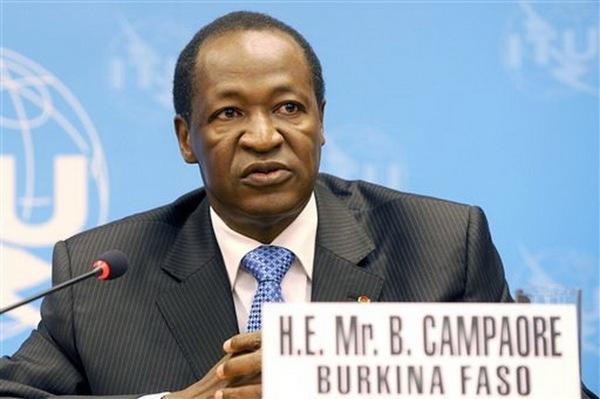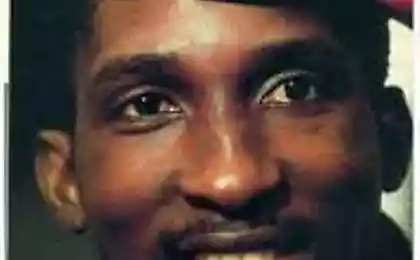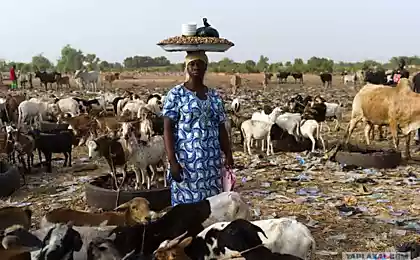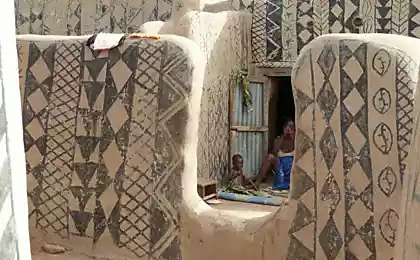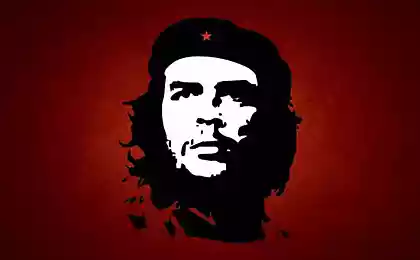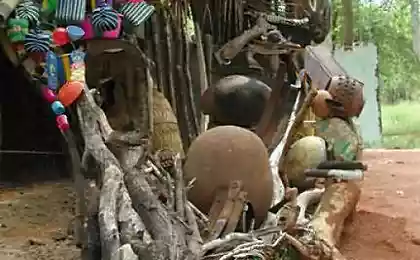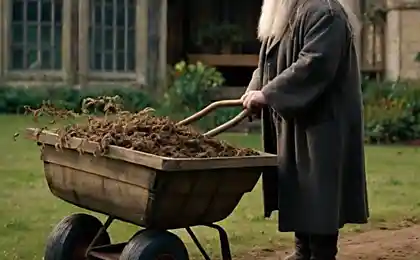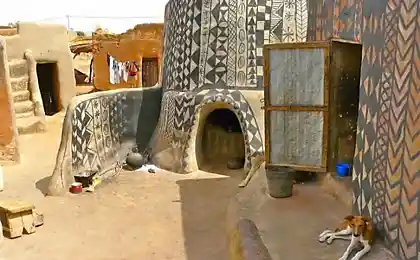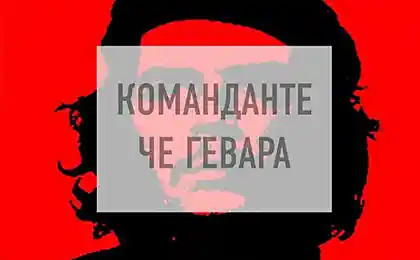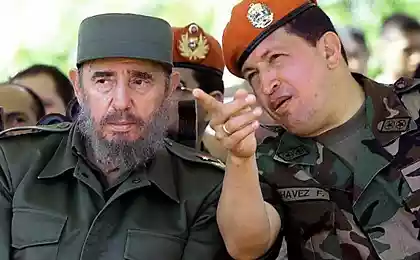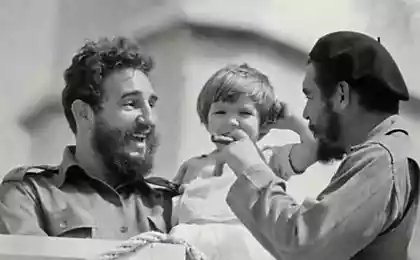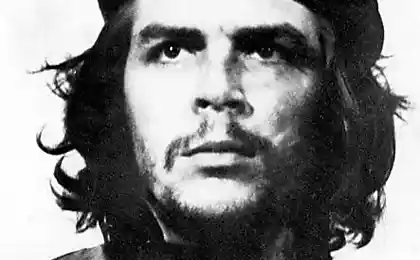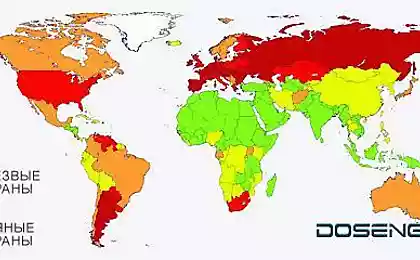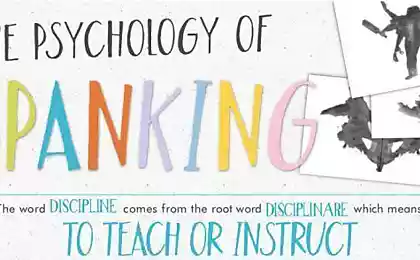722
Comandante Burkina Faso
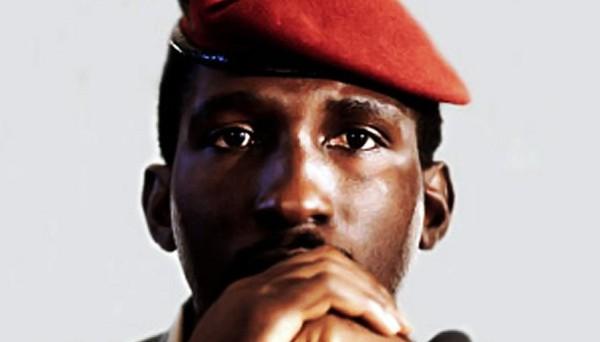
Thomas Sankara. Disgraced 33-year-old officer, took office August 4, 1983 in a military coup - the garrison revolt organized by his friend, Captain Blaise Compaore, and became chairman of the National Council of the Revolution of Burkina Faso.
From the very first days in office, he made it clear that is an idealist, for whom social justice and development of their country - the value of the highest order.
One of the first innovations was the publication of his government revenues and schёtov all state officials. Sankara cut their salaries, and to prohibit use of chauffeur and fly on first class tickets. They are also required to replace expensive Western suits to traditional cotton tunic stitched locals. Was sold to the entire government fleet of 'Mercedes', instead of which for the needs of ministers were purchased "Renault 5" - the cheapest at the time cars strane.Bolee of Sankara forbidden to install air-conditioning in his office, because he "ashamed before the people that such a luxury is not available, "and refused to sanction hanging their portraits in public places and offices in connection with the fact that" in our country, such as myself, seven million. " Under the new year the administrators obliged to pass on the monthly salary in favor of the social funds. Dismiss one half of the cabinet, Sankara sent them to the collective farm - to work on the ground, "where they will be of more benefit." Within three years after the arrival of Sankara to power (in 1986), the World Bank noted that in Burkina Faso to stamp out corruption.
Among the objectives of Sankara, - the elimination of hunger, creation of a system of free education and health care, the fight against epidemics and corruption, reforestation under the onset of the desert (during the years of his presidency were planted 10 million trees, stopped the spread of the sands of the Sahara to the south), a major campaign began vaccination Infectious diseases 2, 5 million children in the "Battle for Health", conducted with the help of Cuban volunteers (was covered not only the whole territory of Burkina Faso, and the border areas of neighboring countries). As a result, infant mortality before the highest in the world (280 deaths per 1,000 live births) decreased to 145 from 1000.
The merit of Sankara also put the program on the construction of housing, debt relief to small tenants, the abolition of the poll tax, "a campaign Alpha" literacy in nine local languages, the program of development of road infrastructure, the fight against "river blindness" and other local diseases.
Thomas Sankara proclaimed the revolution is inseparable from the question of women's liberation. His government included a large number of women that was previously unprecedented in West Africa. Women in Burkina Faso are finally equal rights with men and access to education.
Sankara encouraged women to join the army and created a female Guard detachment on motorcycles. To ensure the rights of women have been banned barbaric custom of female genital circumcision, forced marriages and polygamy.
In the first year of the revolution held a "Day of Solidarity", when men were told to prepare lunch and go to trade the market to test themselves "charms" women's share. In Burkina Faso, began the spread of contraception, and the government Sankara was the first in Africa, officially recognized the AIDS epidemic, considering it a serious threat to the African peoples.
One of the important decisions of the revolutionary government was depriving tribal chiefs privileges and property, the abolition of the payment of tribute to them and mandatory detentions for farmers. During the agrarian reform plots owned by the feudal landowners, have been redistributed in favor of the processing of their farmers.
As a result, three years wheat yields increased from 1,700 to 3,800 kg per hectare, which allowed the country to reach the food self-sufficiency. Instead of the archaic structure of the tribal authorities in the Cuban example were created committees to defend the revolution - the mass organizations in which people carried weapons.
Thomas Sankara was killed October 15, 1987 during a coup arranged by his friend and colleague, the Minister of Justice Blaise Compaore. The first thing Compaore, who verbally declared himself the heir of the revolutionary course, began to curtail all the achievements of the four-year reign of Thomas Sankara. The first was canceled nationalization of enterprises in the country, open access to foreign capital.
Compaore also started to return privileges and high salaries to officials, senior officers of the army and police, which had planned to build in his direction. The funds, which Sankara collected into a special fund for slum shanty towns of the capital Ouagadougou, the new president bought himself a private jet.
